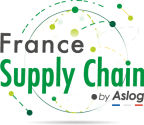BUT (Bachelor of Technology) Logistics and Transport Management (MLT)
23 IUTs throughout France

BUT MLT trains graduates to manage and optimize logistics and transport flows, drawing on a solid academic and professional background. The program develops skills in management, digital tools, supply chain coordination and sustainable transition issues. It prepares students for middle management positions in the service of an efficient, connected and sustainable supply chain.
Admission
Eligibility criteria
- Holders of a general or technological baccalaureate
- Holders of a vocational baccalaureate with prior experience in transport and logistics (subject to capacity)
- Candidates with professional experience in transport or logistics with Validation des Acquis Professionnels (VAP)
Admission process
- Possibility of direct entry into BUT 2 or BUT 3 training, depending on the curriculum followed and a Validation des Acquis de l'Expérience et/ou de la Formation (VAE-VAF).
- Parcoursup, studies in France
- Application and possible interview
Training costs
- 170 euros
- You will also have to pay the student life contribution (CVEC) of 95 euros. But you won't have to pay anything if you have a scholarship or a professionalization contract.
Where students come from
- BUT MLT welcomes all nationalities (minimum level B2 in French)
Teaching
Domains
- Supply Chain
- Logistics
- Transport
Main themes
- Overseas transport, multimodality and sustainable development
- Customs and Insurance
- International transport and business law
- Animation and project management in a multicultural environment
- Information systems and data processing
- Continuous improvement and innovation inside and outside production
- Operational research
- Monitoring and steering supply chain performance... Courses taught by specialists in the sector's themes (research professors, lecturers and expert professionals).
Organization
Part-time or full-time training.
What next?
Professions after training: positions with greater managerial responsibilities, but also new professions geared towards the digitalization of mobility and the supply chain, or towards taking greater account of sustainable development in the logistics and transport sector (warehouse manager, customs declarant, transport operator (passenger or freight), mobility researcher, dock manager, sales forecaster/demand planner, flow manager, scheduler, etc.).

- Organization type: University
- Level of diploma obtained: Bac +3
- Language: Part of the course is in English
- Certifications: Cargo Transport Capacity, IATA (International Air Transport Association)
- Accreditations/labels: QUALIOPI
Standardized European credit system facilitating the comparison and equivalence of diplomas within the European Union.
Set up in 2001, the CEFDG assesses the quality of business school courses, guaranteeing quality control of Master's degrees, under the supervision of the Ministries of the Economy and Higher Education.
Awarded to certain Bac +5 diplomas, issued by the French government on the recommendation of the CEFDG, it facilitates European mobility without being confused with the national Master's degree, reserved for French universities.
A Bac +6 diploma, accessible after a Bac +5 or an M1 with 3 years' experience, aimed at acquiring expertise or dual skills, with a compulsory internship and strong professional involvement.
Source: Conférence des Grandes Écoles.
A Bac +5 diploma, accessible after Bac +4, focused on an international career. It includes 50% foreign-language teaching, 450 hours of classroom time and a minimum 4-month internship.
Source: Conférence des Grandes Écoles.
1-year professional training program for experienced executives with 6 years' experience (10 years for the Executive MBA), often part-time and continuing education, unregulated but accredited by the AMBA for the best programs.
It concerns the school as a whole (operations, pedagogy, premises, teachers), but does not certify diplomas, a role reserved for the Visa.
Lists all state-recognized diplomas, titles and certificates with official professional value. It guarantees that the certifications listed meet the needs of the job market.
Enables anyone in employment to obtain a professional qualification (diploma, title or certificate) by valorizing their experience, whether professional or extra-professional. The certification must be registered with the RNCP.
Source : France travail
Awarding of a diploma by a state-recognized private establishment after 5 years of existence, following an inspection verifying the quality of the training, admission and award of the diploma.
This American label, created in 1916, is an accreditation that rewards business schools for the quality of their management training.
Source : Dimension Commerce
A British label guaranteeing the quality of leading-edge executive programs offered by business schools. By 2022, there will be 20 AMBA-certified schools in France.
Association (under the French law of 1901) of leading engineering, management and multiple or specific higher education schools, all recognized by the French State, awarding a diploma of at least 5 years' study after the baccalauréat and conferring the grade of Master, as well as, for some of them, a national diploma.
Source: Ministry of Higher Education and Research.
Association of engineering, management and higher education schools, awarding state-recognized Master's-level degrees after at least 5 years of post-baccalaureate study.
Source: Ministry of Higher Education and Research.
National accreditation standards for training organizations wishing to prepare and present candidates for professional certifications in the metallurgy branch.
Since 1934, this independent organization has been mandated by French law to evaluate all engineering training programs, develop the quality of training and promote the title and profession of engineer in France and abroad.
Source : CTI
Qualification leading to the signature of a multi-year contract between the State and the recognized institution, setting strategic objectives to meet national priorities in higher education and research.
Source: Ministry of Higher Education and Research.
New label from EFMD (EFMD Programme Accreditation System) launched in August 2019, which allows an EQUIS-accredited institution to focus on one of its programs that it deems particularly strategic.
Source : Studyrama
Created in 1997, this European label is awarded by EFMD to business and management schools for a period of 3 or 5 years.
Independent public authority assessing higher education and research structures, and supporting quality improvement in France through analysis, evaluation and recommendations.
Source : HCÉRES.
CFA organizations recognized by leading engineering schools to train engineers through work-study programs.
A competitive cluster for transport, mobility and logistics based in the Hauts-de-France region.
This recent label enables CGE members to gain recognition for their expertise in digital technology, particularly in the field of teaching and distance learning, both in France and abroad.
Source : CGE
This service certification awarded by SGS is recognition by an independent third-party organization of the company's commitment to offering its customers quality services, meeting the characteristics defined in a set of standards.
Source : SGS
Mark certifying the quality of the process of training, skills assessment, VAE and apprenticeship training providers, guaranteeing their compliance with quality requirements.
Source: Ministère du Travail, du plein emploi et de l'insertion.
A 4-module course leading to certification in industrial flow and operations management, sharing internationally recognized methods and tools for mastering logistics processes.
A 132-question reference framework and audit methodology for assessing and improving supply chain performance, accessible via auditor certification and a junior version for students.
This unique standard for assessing and certifying Supply Chain skills enables all managerial professionals to validate their skills and identify potential areas for development.

